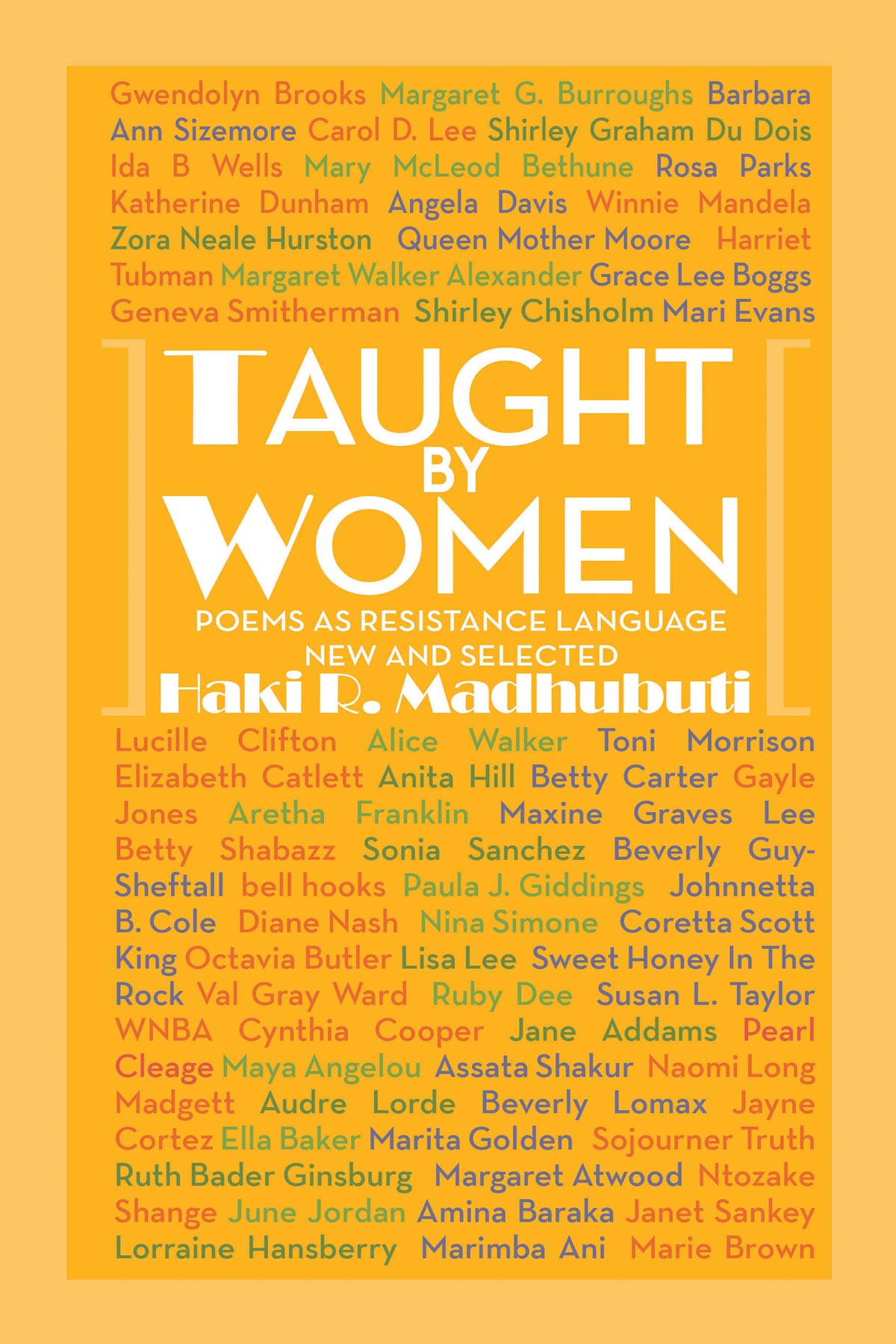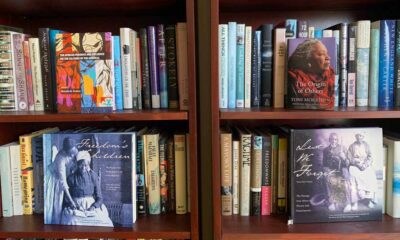Book Review
A Celebration of Women through Poetry

Taught By Women: Poems as Resistance Language,
New and Selected
By Haki R. Madhubuti
257 pp., Third World Press, 2020
by Dr. Brenda M. Greene
“What is more needed than these poems celebrating our traditional selves, our long history of loving and being loved? Who better than Haki to continue to write them? A necessary book.” – Lucille Clifton
Award-winning poet Lucille Clifton’s words, provide a context for understanding the value system and commitment of Dr. Haki Madhubuti (Haki), poet, scholar, activist, educator, and institution builder, to heeding his inner call to celebrate Black women. Haki has penned a book dedicated to women he has encountered, admired, and interacted with through his work. Taught By Women: Poems as Resistance Language, New and Selected (Third World
Press, 2020), is a tribute to women in their many roles: mother, poet, playwright, novelist, scholar, educator, cultural worker, and more. The reader meets Gwendolyn Brooks, Haki’s cultural mother, who had the distinction of being the first Black author to win the Pulitzer Prize.
He dedicates poems to Maya Angelou, Toni Cade Bambara, Dr. Margaret Burroughs, Lucille Clifton, Ruby Dee, Zora Neale Hurston, Toni Morrison, Ntozake Shange, Sonia Sanchez, Dr. Betty Shabazz, his wife, Dr. Carol Lee/ Safisha Madhubuti, and many unsung “sheroes.”
Taught By Women also pays tribute to those men who have respected, celebrated, and valued women and acknowledges the value of poetry as an act of resistance.
Haki’s life’s work and poetry exemplify the poetry of resistance and the principles of Kwanzaa (unity, self-determination, collective work and responsibility, cooperative economics, purpose, creativity, and faith) by which he lives. In the opening poem of the volume, “For the Consideration of Poets,” he asks, “where is the poetry of resistance, the poetry of honorable defiance, unafraid of the lies from career politicians and businessmen. . . “ The principles of Kwanzaa are represented in his work. He is the co-founder of four independent schools in Chicago, the author of over 30 books, and in the words of Gwendolyn Brooks, the poet who “speaks to blacks hungry for what they refer to as real poetry.”
The celebration of mothers is central in Taught by Women. In “Mothers,” dedicated to Mittie Travis (1897-1989), Maxine Graves Lee (1924-1959), and Gwendolyn Brooks (1917-2000), he tells us, “mothers are not to be confused with females who only birth babies,” and asks how should we celebrate mothers when they are in the winter of their lives and how will we thank them for hidden pains. Haki reminds us that mothers instill questions and common sense, listen when others will laugh, give up their food as they suffer hunger pains silently, and are gifts who share full hearts, friendships, and mysteries. One section of the anthology is dedicated to poems in memory of his mother, Helen Maxine Graves Lee.
As a believer in book culture, Haki also pays tribute to librarians in a poem dedicated to Mary A. Dempsey, Commissioner of the Chicago Public Library. He calls librarians “The Careful Equalizers” and describes how librarians have the book as groundwork, and in doing so, they anchor the center place of good thoughts and civilization. In his words, they are silent questioners, big idea disciples, creative culture makers, and classroom developers in their quest for wisdom.
Haki underscores the need for art in our lives as a central theme in his poetry. In “Art,” he states: Art is a prodigious and primary energy force. . . .
Art is fundamental instruction and food for a people’s soul. . . Magnify your children’s minds with art.
Art allows and encourages the love of self and others. . . And in his tribute to Ruby Dee, Haki recounts how “art cures ignorance, boredom, and one good nerve.” His poem “Toni” also references the artist. “It is the artist who questions madness among enemies, lovers, leaders, friends, and family.”
The poem “Is Truth Liberating?” dedicated to Beverly Guy-Sheftall, Alice Walker, and bell hooks, acknowledges how society responds to women who question and speak out. He notes that “Black people in America may not be made for the truth. . . “
Haki admired Barbara A. Sizemore, a dedicated educator, and educational theorist. She was the first Black woman elected superintendent of a major city school system. In “All Children are Precious,” Haki describes how she sees “children as sacred places.”
Honoring and cherishing Black women through poetry is a way of resistance for Haki.
He closes Taught by Women by crafting essays that provide a substantive analysis of women writers whose work deserves more recognition from the public and literary world. The essays “Lucille Clifton: Warm Water, Greased Legs, and Dangerous Poetry;” “Sonia Sanchez: The Bringer of Memories,” “Bambara: What She Meant to Us/Me,” and “Ntozake Shange: Never Wrong-Eyed;” create, in the words of Haki Madhubuti, a language of possibilities, hope, and yes.
In his words, “It may be a man’s world, yet it is women who write music that navigates the harmony that grows children . . .”
Dr. Haki R. Madhubuti was the featured speaker at the 16th National Black Writers Conference, The Beautiful Struggle: Black Writers Lighting the Way. To listen to his speech, visit https://www.youtube.com/watch?v=wP6aYD-kmd4&t=2659s
Dr. Brenda M. Greene is a Professor of English and Founder and Executive Director of the Center for Black Literature at Medgar Evers College, CUNY.




